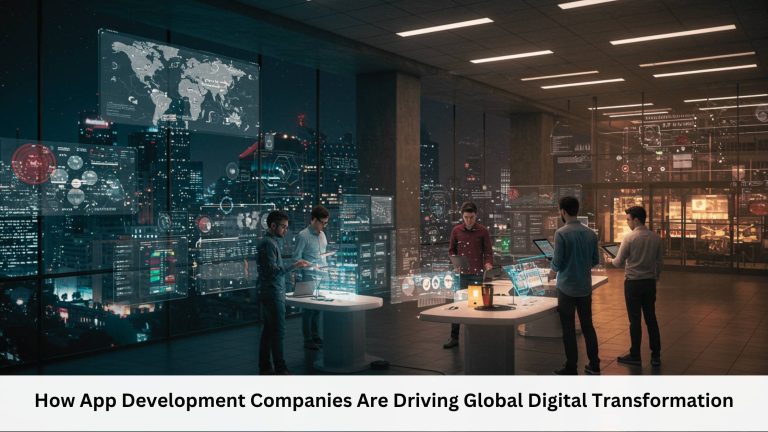Introduction to AI in SocietyArtificial Intelligence (AI) has become an integral component of the modern world, deeply embedded in the fabric of various social frameworks. AI’s integration ranges from automation of routine tasks to complex decision-making processes that mimic human cognitive functions. The essence of AI in society is not just its technological capabilities but also its ability to enhance, alter, and in some cases, fundamentally reshape interactions within human communities. By infiltrating sectors such as healthcare, education, and transportation, AI has proved its potential to augment the efficiency and effectiveness of services, catalyzing positive transformations in societal norms and everyday life.
AI Impact on Communication
AI has profoundly influenced the sphere of communication, transforming both interpersonal engagements and professional interactions. Through innovations such as chatbots and virtual assistants, AI technologies have streamlined communication processes, enabling more efficient customer service and support. Chatbots, equipped with natural language processing abilities, can interact in a human-like manner, addressing queries and providing information round-the-clock. This not only enhances customer experience by ensuring constant availability but also significantly reduces the workload on human employees. Additionally, virtual assistants have become commonplace in managing personal and professional tasks, suggesting that AI’s role in communication is pivotal in enhancing productivity and connectivity in modern society.
AI Humanizers and Natural Language
As AI-generated content becomes more prevalent in communication, AI humanizers have emerged to make machine-produced text sound more natural and relatable. These tools refine robotic or overly formal language, adjusting tone and phrasing to match human expression. Whether for emails, customer interactions, or creative writing, AI humanizers help bridge the gap between machine output and authentic human communication, ensuring that AI-driven content feels more personal and emotionally resonant.
AI and Social Governance
In the realm of public policy and social governance, AI’s influence is increasingly visible. AI technologies are being deployed to improve the effectiveness of governance systems through data-driven decision-making and predictive analytics. In law enforcement, AI tools such as facial recognition software and predictive policing algorithms are used to enhance public safety and reduce crime rates. However, this also raises significant concerns regarding surveillance and civil liberties. Furthermore, AI is utilized in regulatory compliance, where it can quickly analyze vast amounts of data to ensure adherence to laws and regulations, a process that would be considerably slower and prone to error if performed manually. Thus, while AI presents substantial benefits in governance, it also necessitates careful consideration and management of potential risks and ethical implications.
Ethical Considerations of AI
As AI continues to permeate various aspects of social structures, it brings with it a host of ethical challenges. Privacy concerns are paramount, with AI’s ability to collect and analyze personal data raising fears about surveillance and the potential misuse of information. Additionally, AI systems can exhibit biases that are inherent in their training data, leading to discriminatory practices in areas like hiring, law enforcement, and loan approvals. These biases can amplify existing societal inequalities if not adequately addressed. Moreover, the deployment of AI raises moral dilemmas regarding accountability, especially when decisions made by AI systems have serious implications on people’s lives. Addressing these ethical considerations is crucial in building trust and ensuring that AI contributes positively to society.
AI in Economic Structures
AI’s impact on economic structures is both transformative and expansive. In industries, AI-driven automation not only increases efficiency but also changes the nature of many jobs, leading to a significant shift in workforce requirements and job market dynamics. This automation, while beneficial in terms of productivity, also raises concerns about job displacement and the future of work. Moreover, AI plays a crucial role in shaping economic policies, as governments and organizations leverage AI tools to forecast economic trends and formulate strategies accordingly. The influence of AI in economics is a powerful driver of innovation and competitiveness, but it also requires adaptations in education and workforce development to prepare individuals for the evolving job landscape.
Future Predictions for AI in Social Structures
Looking ahead, the interactions between AI and social structures are likely to deepen, with AI becoming even more ingrained in everyday life and essential social functions. Predictive trends suggest that AI will continue to enhance personalized experiences in sectors such as education and healthcare, making services more accessible and tailored to individual needs. In governance, AI might play a role in making democratic processes more transparent and participatory through enhancements in communication between citizens and governments. However, the benefits of these advancements will depend significantly on the societal approach to managing AI’s development and integration, emphasizing responsible use and addressing ethical concerns proactively.
Visit https://megapersonals.co.com/
Conclusion
In conclusion, AI’s role in modern social structures is multifaceted and profoundly influential, shaping the way societies function, communicate, and govern. From enhancing communication and transforming economic policies to raising important ethical questions, AI’s integration into social frameworks is undeniable. Moving forward, the challenge will lie in harnessing AI’s potential responsibly and ethically, ensuring it serves to augment human capabilities and promote social welfare without compromising individual rights or societal values. As we look to the future, the thoughtful integration of AI will be essential in creating, maintaining, and evolving modern social structures that are equitable and inclusive.





